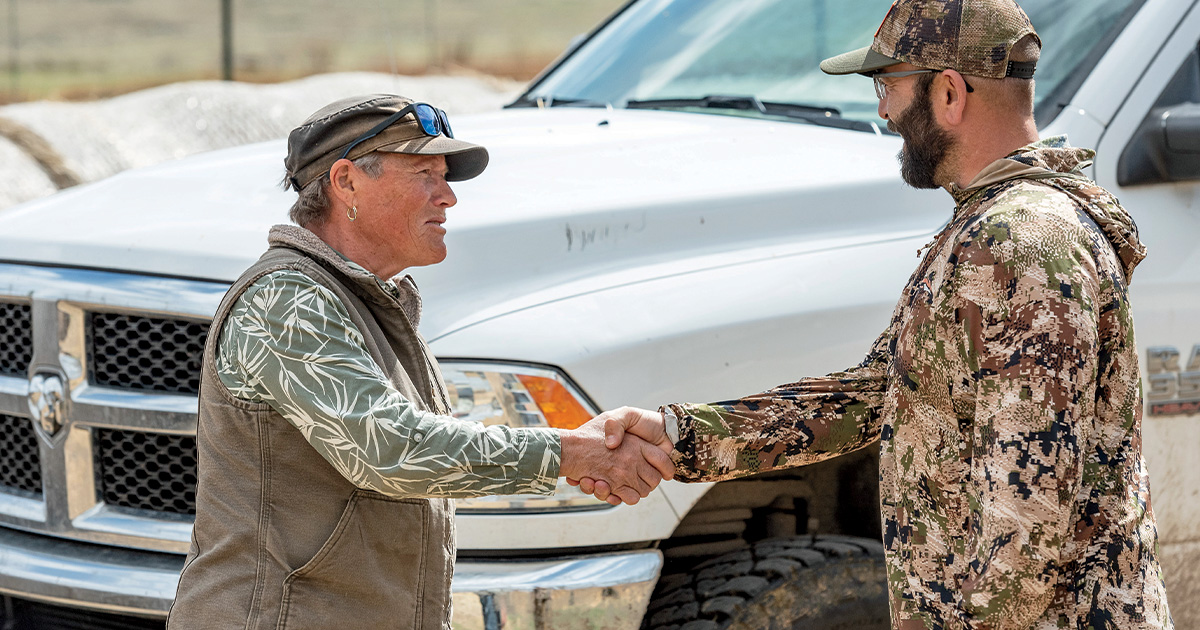Getting Permission to Hunt
Whether you're a seasoned hunter or just starting out, these five tips can help you gain access to hunt private land
Whether you're a seasoned hunter or just starting out, these five tips can help you gain access to hunt private land

The places where waterfowlers enjoy hunting ducks and geese vary greatly, from public marshes to exclusive private clubs. In some parts of the country, such as the Dakotas, there are still opportunities to access private ground by asking permission from landowners. Here are five tips on how to get it done.
This first tip is really simple: tell the truth. Be clear about when and where you would like to hunt and how many people will be hunting with you. If any of those plans change, be sure to clear it with the landowner before hunting on a different day, in a different area, or with a bigger group. And if you tell the landowner that you are going to be hunting ducks and geese, only hunt ducks and geese. Following that rule will help build trust between you and the farmer or rancher, and it may lead to more hunting opportunities in the future.
With smartphone apps like OnX, there is no excuse for not knowing the exact location of where you plan to hunt. When you ask for permission, use your phone to pull up a map that shows the location of the field or marsh that you would like to hunt and share it with the landowner. This extra step will show the landowner that you do not want to make a mistake, and he or she might even suggest another spot that has more birds.

A little courtesy will go a long way toward helping you secure permission to hunt on private land. Treat the landowner and the land with respect, pick up after yourself, and say thank-you.
Farmers and ranchers are often up early in the morning and work late into the evening, especially during the harvest season, which creates a large window of opportunity to reach out and ask for permission. Still, you should keep a few common courtesies in mind.
First, if you are asking in person, avoid interrupting a landowner in the middle of doing chores, and never pull into a field and make a farmer stop a combine or grain cart during the harvest. Second, keep your conversation short and to the point. Landowners are busy. Last, if you are returning to an area that you have hunted before, give the landowner a call ahead of time to let him or her know that you’ll be back and when you plan to hunt.
Landowners respect hunters who respect the land and the opportunity to hunt on their property. Pick up after yourself, including empty shell hulls, snack wrappers, or any other trash or debris. If you opened a gate, close it.
Last, be sure to circle back with the landowner right after the hunt to say “thank-you” in person or over the phone. If you have a great photo from the hunt, text the image to the landowner or send a handwritten thank-you note. No matter how you express it, showing gratitude will go a long way toward creating future hunting opportunities.
Ducks Unlimited uses cookies to enhance your browsing experience, optimize site functionality, analyze traffic, and deliver personalized advertising through third parties. By continuing to use this site, you agree to our use of cookies. View Privacy Policy